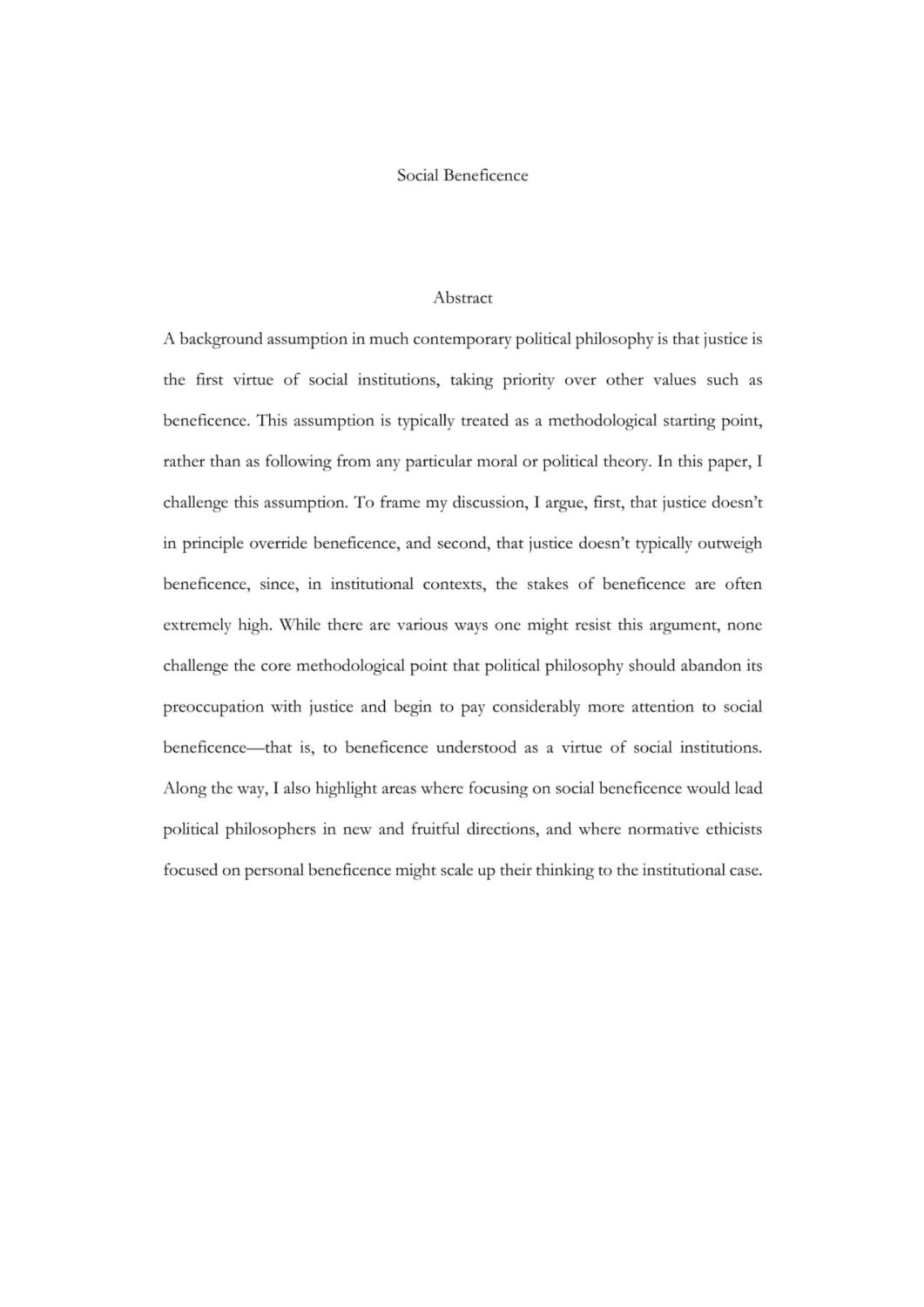Social Beneficence
Jacob Barrett (Global Priorities Institute, University of Oxford)
GPI Working Paper No. 11-2022
A background assumption in much contemporary political philosophy is that justice is the first virtue of social institutions, taking priority over other values such as beneficence. This assumption is typically treated as a methodological starting point, rather than as following from any particular moral or political theory. In this paper, I challenge this assumption. To frame my discussion, I argue, first, that justice doesn’t in principle override beneficence, and second, that justice doesn’t typically outweigh beneficence, since, in institutional contexts, the stakes of beneficence are often extremely high. While there are various ways one might resist this argument, none challenge the core methodological point that political philosophy should abandon its preoccupation with justice and begin to pay considerably more attention to social beneficence—that is, to beneficence understood as a virtue of social institutions. Along the way, I also highlight areas where focusing on social beneficence would lead political philosophers in new and fruitful directions, and where normative ethicists focused on personal beneficence might scale up their thinking to the institutional case.
Other working papers
What power-seeking theorems do not show – David Thorstad (Vanderbilt University)
Recent years have seen increasing concern that artificial intelligence may soon pose an existential risk to humanity. One leading ground for concern is that artificial agents may be power-seeking, aiming to acquire power and in the process disempowering humanity. A range of power-seeking theorems seek to give formal articulation to the idea that artificial agents are likely to be power-seeking. I argue that leading theorems face five challenges, then draw lessons from this result.
The Hinge of History Hypothesis: Reply to MacAskill – Andreas Mogensen (Global Priorities Institute, University of Oxford)
Some believe that the current era is uniquely important with respect to how well the rest of human history goes. Following Parfit, call this the Hinge of History Hypothesis. Recently, MacAskill has argued that our era is actually very unlikely to be especially influential in the way asserted by the Hinge of History Hypothesis. I respond to MacAskill, pointing to important unresolved ambiguities in his proposed definition of what it means for a time to be influential and criticizing the two arguments…
The long-run relationship between per capita incomes and population size – Maya Eden (University of Zurich) and Kevin Kuruc (Population Wellbeing Initiative, University of Texas at Austin)
The relationship between the human population size and per capita incomes has long been debated. Two competing forces feature prominently in these discussions. On the one hand, a larger population means that limited natural resources must be shared among more people. On the other hand, more people means more innovation and faster technological progress, other things equal. We study a model that features both of these channels. A calibration suggests that, in the long run, (marginal) increases in population would…

